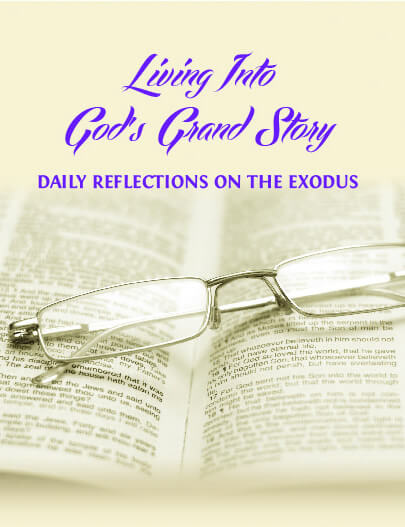
Exodus 6:8-9
Researchers call it “Learned Helplessness”. It is learned behavior in which a person gives up trying to escape a painful situation after repeatedly failing. Learned Helplessness is seen in tests where an animal is repeatedly hurt by painful stimuli. Unable to escape from the pain the animal eventually behaves as though completely helpless. As a pastor and a chaplain I often watched individuals and even whole families ground down into hopeless despair. They are helplessly unable to imagine a better way of life.
The Israelites are in Learned Helplessness after 400 years of bondage and oppression in Egypt. When God sends Moses to them with good news of redemption they do not listen, “because of their broken spirit and their cruel slavery”. The Israelites’ “broken spirit” is literally in the Hebrew text “shortness of spirit” (kotzer ruach). For the Hebrews the “ruach is the spiritual and psychic energy that motivates action. Its absence or attenuation signifies atrophy of will” (Nahum Sarna, Commentary to Exodus). The Israelites are so short of spirit and ruach, so broken, that they have no will, no imagination, and no ability to conceive a new reality.
Have you ever been so far down that you could not even hear God’s good news of deliverance? Has life ever been so painful that you couldn’t imagine healing? Have you ever been so deeply in bondage that you dared not hope to be free? The Exodus journey is a journey not only out of bondage to freedom, but also out of hopelessness to hope. “I will take you as my people, and I will be your God”.
At a very dark time in my life when I wouldn’t even dare to let myself hope, I happened upon these remarkable words by Frederich Buechner in Sacred Journey:
To do for yourself the best that you have it in you to do – to grit your teeth and clench your fists in order to survive the world at its harshest and worst – is, by that very act, to be unable to let something be done for you that is more wonderful still.
Let God do something for you!
REFLECTION
- Can you think of a time when you, like the Israelites, felt totally hopeless about your future? Explain.
- Are you presently experiencing an “Egypt” so that you are feeling powerless and hopeless? If so, talk to God about it right now.
- Perhaps you find yourself unable to hope for something better. But if you could hope, what would that hope look like for you? Now talk to God about what you would hope for if you could hope.


